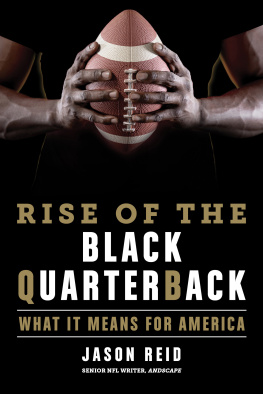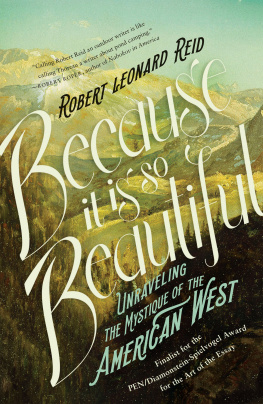Robert F. Reid-Pharr - Black Gay Man
Here you can read online Robert F. Reid-Pharr - Black Gay Man full text of the book (entire story) in english for free. Download pdf and epub, get meaning, cover and reviews about this ebook. year: 2001, publisher: New York University Press, genre: Politics. Description of the work, (preface) as well as reviews are available. Best literature library LitArk.com created for fans of good reading and offers a wide selection of genres:
Romance novel
Science fiction
Adventure
Detective
Science
History
Home and family
Prose
Art
Politics
Computer
Non-fiction
Religion
Business
Children
Humor
Choose a favorite category and find really read worthwhile books. Enjoy immersion in the world of imagination, feel the emotions of the characters or learn something new for yourself, make an fascinating discovery.

- Book:Black Gay Man
- Author:
- Publisher:New York University Press
- Genre:
- Year:2001
- Rating:4 / 5
- Favourites:Add to favourites
- Your mark:
- 80
- 1
- 2
- 3
- 4
- 5
Black Gay Man: summary, description and annotation
We offer to read an annotation, description, summary or preface (depends on what the author of the book "Black Gay Man" wrote himself). If you haven't found the necessary information about the book — write in the comments, we will try to find it.
Black Gay Man — read online for free the complete book (whole text) full work
Below is the text of the book, divided by pages. System saving the place of the last page read, allows you to conveniently read the book "Black Gay Man" online for free, without having to search again every time where you left off. Put a bookmark, and you can go to the page where you finished reading at any time.
Font size:
Interval:
Bookmark:
Thank you for buying this ebook, published by NYU Press.
Sign up for our e-newsletters to receive information about forthcoming books, special discounts, and more!
Sign Up!
A publisher of original scholarship since its founding in 1916, New York University Press Produces more than 100 new books each year, with a backlist of 3,000 titles in print. Working across the humanities and social sciences, NYU Press has award-winning lists in sociology, law, cultural and American studies, religion, American history, anthropology, politics, criminology, media and communication, literary studies, and psychology.
Black Gay Man
SEXUAL CULTURES: New Directions from the Center for
Lesbian and Gay Studies
General Editors: Jos Esteban Muoz and Ann Pellegrini
Times Square Red, Times Square Blue
Samuel R. Delany
Private Affairs
Critical Ventures in the Culture of Social Relations
Phillip Brian Harper
In Your Face
9 Sexual Studies
Mandy Merck
Tropics of Desire
Interventions from Queer Latino America
Jos Quiroga
Murdering Masculinities
Fantasies of Gender and Violence in the American Crime Novel
Greg Forter
Our Monica, Ourselves
The Clinton Affair and the National Interest
Edited by Lauren Berlant and Lisa Duggan
Black Gay Man
Essays
Robert F. Reid-Pharr, Foreword by Samuel R. Delany
Essays
ROBERT F. REID-PHARR
Foreword by Samuel R. Delany

NEW YORK UNIVERSITY PRESS
New York and London
2001 by New York University
All rights reserved
Library of Congress Cataloging-in-Publication Data
Reid-Pharr, Robert, 1965
Black gay man : essays / Robert Reid-Pharr ; foreword by
Samuel R. Delany.
p. cm. (Sexual cultures)
Includes index.
ISBN 0-8147-7502-0 (cloth) ISBN 0-8147-7503-9 (paper)
1. African American gays. 2. African AmericansRace identity.
3. African AmericansIntellectual life. I. Title. II. Series.
HQ76.2.U5 R45 2001
305.3896642dc21 2001000080
New York University Press books are printed on acid-free paper, and their binding materials are chosen for strength and durability.
Manufactured in the United States of America
10 9 8 7 6 5 4 3 2 1
For opening innumerable doors for me, to the heart, to the head, to the tools of my trade many thanks and much love go to Lee Baker, Mia Bay, Roberto Bedoya, Jodi Benjamin, Herman Bennett, Antoinette Burton, Hazel Carby, Bill Cohen, Arnaldo Cruz-Malave, Patricia Dixon, Cheryl Dunye, Shelly Eversley, Gerard Fergerson, Carl Fraley, Shari Frilot, Robert Garland, Venita George, Paul Gilroy, Alan Grossman, Siba Grovogui, John Guillory, Phillip Brian Harper, Benjamin Herman, Francisco Herrera, K. Brent Hill, Michael Johnson, Alexandra Juhasz, John Keene, Katrina Bell McDonald, Dwight McBride, Alfred Manuel, Frank Mitchell, Elena Mdol, Darrell Moore, Jennifer Morgan, Zachary Morgan, Bruce Morrow, Jos Muoz, Odena Neale, Eve Oishi, Ricardo Ortiz, John Plotz, Sabiyha Prince, Yevette Richards, Colin Robinson, Joaquim Rodrguez, Joan Saez, Roger Schulte, Robert Sciasi, Eve Sedgwick, Barbara Smith, Paul Smith, Dina Suggs, Ibrahim, Sundiata, Peter Taylor, Sasha Torres, Scott Trafton, Michelle Wallace, Joe Wittreich, Tony Young, and Eric Zinner.
Between the glorious promise of 1848s Communist Manifesto and the more focused analysis of 1851s Eighteenth Brumaire of Louis Bonaparte (and its darker twin, The Class Struggle in France: 1848 to 1850), a problematic intrudes itself into Marxs thought that will trouble the left up to the present day. From the Revolution of 1848 and its fallout over 49, 50, and 51, the thorn in the side of Marx in particular and socialists in general was and has been: Why, in a democratic nation, does the working classand specifically the most oppressed and exploited segments of the working classtend to vote in such a politically conservative manner?
Are they deluded? Are they just stupid? Have they been intellectually manipulated? Transfer this question to the black American underclass and its recently emergent middle classwith our histories of massive enslavement and free-issue blacks, of oppression and resistence, of Jim Crow, segregation and black nationalism, our integrationalists and assimilationists, our separatists and Afro-centrists, our melaninists and our culturalistsand it re-complicates into a truly nightmarish theoretical tortuosity.
The fundamental explanation for working class conservatism is, nevertheless, simple and basicthough I am unaware of any place in which Marx formulated it as a clear political principle. The grounding political fact, however, any 18-year-old sweep-up boy with an 80 IQ can probably formulate a version of for himself: In a money economy, where all my salary comes from X, it is lunatic for me to vote against Xs best interests.
It does not take a lot to realize that if your boss suffers economically, then everything from your working conditions to your take-home pay is threatened. As a political principle, then, this works as the great stabilizer for democratic money economies. As social progress has come about in the interstices this principle allows for, we have moved toward our current positionthe best of all possible worlds? By no means. Still, it is a world that is stable enough that a radically interrogating superstructure can take as its motto and first principle freedom of speech. And we must remember that it is only those workersusually urban artisans (a realization Marx did come to)whose money comes from several social class sources, up and down the social ladder, who can afford to entertain a truly radical political practice.
A second awareness slowly becoming part of leftist thought is simply that, if we believe that a relatively peaceful revolution is preferable to an armed one always to come, then we arealwayswithin the center, as we are always at the beginning, of that revolution now. The stabilizing force of the working classs political conservatism allows that revolution to progress without breaking out into armed encounters.
The introduction and nine essays that follow are from a young critic for whom such an awareness as I speak of above is now a strongernow a weakercurrent in his thought. An awareness of the infrastructural stability underlying the superstructural arena in which political debate takes place frees a critic such as Robert F. Reid-Pharr to breech areas of the the outrageous with often memorable effect.
I dont agree with all he says. Reid-Pharr thinks that the anti-Semitic rhetoric and ideas here and there associated with black nationalism and the Black Muslim movement (among the most troubling aspects of black working class conservatism) are an expression of black American alienation, where I would say they compensate for that alienation, rather, in a field where anti-Semitic rhetoric has always already been available, so that, through a process akin to Freudian transference, the discourse in which that rhetoric is caught up reproduces an ugly, divisive, and destructive situation. Anti-Semitism from the oppressed represses much, but it expresses little except a hostility that could be a positive energy turned elsewhere. That Reid-Pharr takes on such a topic in a field of such scandalous or outrageous objectivity is nevertheless to be commended. We must listen to his arguments carefully: there is nothing slapdash or careless about them.
Next pageFont size:
Interval:
Bookmark:
Similar books «Black Gay Man»
Look at similar books to Black Gay Man. We have selected literature similar in name and meaning in the hope of providing readers with more options to find new, interesting, not yet read works.
Discussion, reviews of the book Black Gay Man and just readers' own opinions. Leave your comments, write what you think about the work, its meaning or the main characters. Specify what exactly you liked and what you didn't like, and why you think so.






